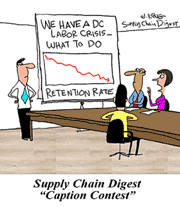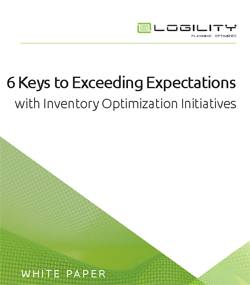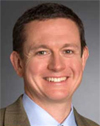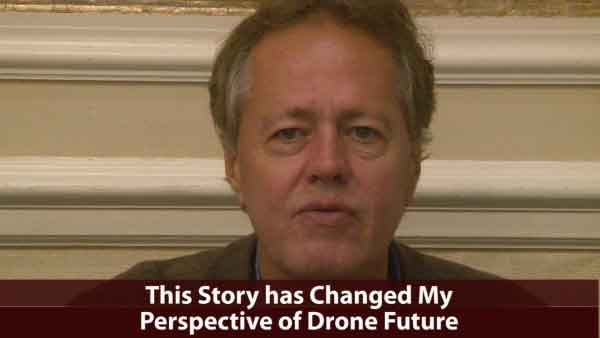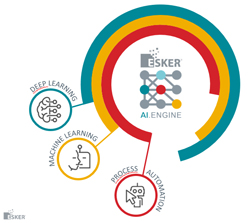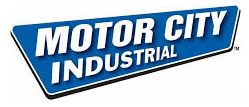Trip Report - CSCMP Edge 2018 in Nashville
I am fresh back from Nashville and CSCMP's 2018 annual conference. It was a good week, and I spoke with lots of SCDigest readers- two who wanted selfies!
All told I give the event very good marks, with the best content in several years.
Thousands of you have watched my daily video recaps of the conference. You will find them here: CSCMP Day 1 Video Review, Day 2, and Day 3.
| GILMORE SAYS: |
So now, "backward" Rwanda is leading the world in drone deliveries, with the US government asking how the country is doing it.
WHAT DO YOU SAY?
Send us your
Feedback here
|
Starting last year, the event is now called CSCMP Edge, after basically forever being just referred to as the CSCMP/CLM annual conference.
Once again, CSCMP said there were about 3000 attendees, the usual number for several years. I think it was actually a few hundred below that the last couple of years, but this year's event felt more crowded than last year for sure. The final days closing session it appeared to me was more crowded than usual.
The history of this is interesting: attendance peaked in the late 1990s, I believe surpassing 6000 at some point. But then the 9-11 attacks happened, taking the crowd sharply back down, as it did to many other events.
Attendance has been stuck somewhere in that just under 3000 range for some time. Can it ever be taken back to higher levels again? That is a key organizational question for CSCMP. I believe so, but it will take hard and smart work. As comparisons, the APICS conference has been drawing about 1800 attendees recently, the Gartner Supply Chain Executive Conference has been getting about 1900 of late, and the Institute for Supply Management conference gets a perhaps surprising 2500 or so.
From a big picture perspective, there were 21 breakout session tracks this year, ranging from integrated supply chain management to one on government and regulations. That was up from 16 last year, and 26 in 2013. The 21 number actually overstates the number of tracks a bit, as just for example there are two tracks for conference sponsor presentations.
All told the winnowing of tracks in my opinion is a good move. There were about 100 total educational sessions over the first two days by my count, a substantial number for sure.
Most prominent subjects/themes this year: transportation woes by far, followed by analytics, omnichannel and block chain. There were also more sessions than related to supplier management. Getting less play than usual: S&OP, forecasting, supply chain planning generally, supply chain design, and distribution, even though there was a track on the latter. I saw nothing on RFID, and little on Sustainability, for what that's worth. All of the above is observational, not a commentary. The breakout topics actually seemed pretty well balanced.
As an aside, CSCMP CEO Rick Blasgen said there were 137 breakout presentation ideas submitted by members for the 2018 conference, 30 of which made the cut. All the rest of the breakout slots - more than two-thirds - are basically developed by the individual track chairs. I must say I would be interested to see the member submissions that didn't make the cut.
There were again just three 75 minutes breakout session slots (usually with about 18-20 presentations in each slot) in each of the first two days, as has been the case for the past five years. That's down from four shorter 45 minute daily breakouts in 2013. As I have said for the past few years, I think 75 minute sessions are too long, and I would like to again see four session slots per day. One way this could be accomplished without adding bloat is to not have every session slot include every track, and/or to repeat the expected most popular presentations.
On the final day, Wednesday, the crowd pulls back to maybe one-third of the first two days. As usual in recent years, there once again were three 90-minute "mega-sessions" to choose from to start the morning, though at just 15 minutes longer than regular breakouts the "mega-session" term no longer really applies. The last day morning concludes with about 90 minutes or so of closing festivities, including as always a motivational-type speaker.
Once again this year, on Sunday before my arrival there was a group exercise of some 200 attendees packing meals for the poor across the globe. Again some 45,000 meals were produced, an operation funded for the fourth year by Bayer/Monsanto and CH Robinson.
I also missed a the second "supply chain unchained" feature at the Sunday evening welcome reception, in which a wide number of supply chain professionals sang or played instruments of all types in sort of karaoke fashion. Last year, CSCMP said the feature would move to Monday night so more people can participate and see it, but that didn't happen. Hope it does in 2019.
In his opening comments Monday, Blasgen as he often does touted the importance of the supply chain profession, noting that supply chain "elevates the standard of living around the globe" - so feel good about what you do. He also noted that "good ideas become commercialized through supply chain."
With the space I have left, this week I am just going to summarize the day 1 and 2 keynotes, and cover the generally good breakout sessions I attended next week.
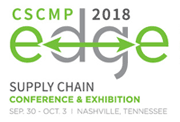 The day 1 keynote was not a keynote at all but rather a panel discussion across a variety of topics from a trio of supply chain executives. I, in fact, proposed such an approach to CSCMP a few years back, naturally with me doing the moderation. I never heard back. The day 1 keynote was not a keynote at all but rather a panel discussion across a variety of topics from a trio of supply chain executives. I, in fact, proposed such an approach to CSCMP a few years back, naturally with me doing the moderation. I never heard back.
The discussion here was led by Kevin Smith, former head of supply chain for CVS and now of Sustainable Supply Chain Consulting. Panelists were Amazon transportation exec David Bozeman, Joanne Wright, head of supply chain for IBM, and Mike Brewer, VP of sourcing and manufacturing for Nike.
I applaud the approach, commonplace at the Gartner supply chain event, but the execution was so-so, a bit long on platitudes and short on insight. But there were moments.
Bozeman noted there is an important difference between having a customer focus and a customer obsession, where all decisions are made by what is best for the customer, as Amazon uses.
Nike's Brewer discussed Nike's focus on sustainability, and acknowledged sometimes that may result in decisions that add cost or decrease margins in the short term. But, he said, Nike is confident those decisions will be rewarded by consumers the long run. There was more - see the day 1 video.
That modest Monday disappointment was more than made up for by the Tuesday keynote, which for me was the highlight of conference. It was given by Keller Renoardo, CEO of Zipline, a company that is developing drone delivery systems for medical supplies and beyond.
The largest drone delivery system in the world is now fully operational in Rwanda, with hundreds of flights daily to deliver needed blood and plasma on-demand to more than 20 hospitals. The system is reducing costs, but more importantly saving lives.
The system using an airplane style drone not a quadcopter, and as a result has a far greater range, more than 300 KM already and sure to grow. As a result, the planes need a launching system, but after getting airborne and reaching their destination, the deliveries are dropped using a paper parachute with incredible precision, so much that the process has simply become routine.
On landing, the drone system uses a hook and line system similar to how it works on aircraft carriers.
So now, "backward" Rwanda is leading the world in drone deliveries, with the US government asking how the country is doing it.
This presentation has changed my whole perspective on drones and what is possible now. Make no mistake that for profit company Zipline has its sights set on the US market, not only for medical deliveries but likely beyond.
If I was FedEx or UPS, I would be paying attention.
So, all told a good two and a half days in Nashville, with better keynotes and breakout sessions than the past couple of years. The Diet Coke - Diet Pepsi actually - was for the first time in years readily available all week long (bit of an inside joke).
That said, I always have some suggestions, which will have to wait, as I am out of room.
I will happily be back for CSCMP 2019 next in Anaheim. Good job again this year by Blasgen and the CSCMP marketing team.
Breakout session summaries next week.
Did you go to CSCMP 2018? If not, why not? If yes, what are your thoughts on the conference? Let us know your thoughts at the Feedback button below.
|



![]()

![]()

![]()



